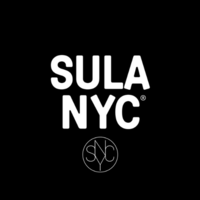
Tuberculosis (TB) is one of the most serious diseases causing fatalities worldwide. The World Health Organization' s 'End TB strategy' aims to: 'end the global TB epidemic, with targets to reduce TB deaths by 95% and to cut new cases by 90% between 2015 and 2035, and to ensure that no family is burdened with catastrophic expenses due to TB'. TB is the threatful infectious disease that dwell about one third of worlds. Among Middle East, Iraq occupy the fifth order country endemic with TB.
Significant parts of Iraq's population has endured hardship, poverty and malnutrition during the war and annually 3,000 died due to TB.
In the summer of 2015 the Journal of Medical Microbiology and Diagnosis published 'Effect of Argan Oil-Hydrogen Peroxide Mixture on Mycobacterium tuberculosis- In Vitro'. Two scientists Anwar K. AL-Saffar and Hussein O. M. Al-Dahmoshi, both researchers of Iraq's Babylon University-College of Science, Biology Department, studied the benefits of Argan oil for treatments of Tuberculosis.
This study aims to investigate the effects of argan oil on Mycobacterium ( = the bacterie causes TB) tuberculosis and conclude the anti-mycobacterial activity of argan oil as a safe medication for preventive action and treatment of TB. Treatment of TB is basically with two types of drugs (besides nutrition and personal hygiene).
Dr. Al-Saffar and Dr. Al-Dahmoshi studied the effects of many oils and plant extract as alternative medications and researched the benefits of Argan oil. We think this is the first study on Argan oil and TB. The rationale to use Argan oil in this study:
'Argan oil is rich herbal and medical oil with beneficial compounds. It contain fatty acids (like myristic, palmitic, palmitoleic, heptadecanoic, stearic, oleic, linolic, linolenic, arachidic and gadoleic acids), sterols (includes schottenol, spinasterol, avenasterol and campesterol), tocopherols (alpha, beta, gamma and delta tocopherols) and triterpene. It also contains carotenes, phenols and squalene. The benefit of argan oil in cosmetics and physiological disorders treatments were extensively studied while little information about antibacterial activity of argan oil gathered. The antibacterial activity of argan oil was firstly studied against two perilous bacteria, Methicillin-resistant Staphylococcus aureus (MRSA) and Pseudomonas aeruginosa isolated from wounds infection'. The researchers used six mixtures of Argan oil during 3 incubation intervals during 30 days in an in-vitro study, using seventeen Mycobacterium tuberculosis isolates. Growth was monitored daily and recorded at different interval.
The result revealed 'excellent effect of Argan oil as anti- Mycobacterial alternative medication for long period that provide safe, economic, easily to metabolize and patient-friend medication. Our data in accordance with other results performed on Methicillin Resistance Staphylococcus aureus (MRSA) and Pseudomonas aeruginosa and confirm their effects on these microbes'.
'The antbacterial activity attributed to phenol and tocopherol compounds in argan oil. Also the activity can be accounted to another component of argan oil like squalene. Argan oil contains high content of squalene (310 mg/100 g) when compare with other medical oils. Squalene has both anti-bacterial and anti-fungal activities [16]. The anti-bacterial and anti-fungal compounds are spinasterol (41%) and schottenol (47%). The current study concludes the antimycobacterial activity of argan oil as a safe medication for prophylaxis and treatment of TB'.
https://www.omicsonline.org/open-access/effect-of-argan-oilhydrogen-peroxide-mixture-on-mycobacterium-tuberculosis-in-vitro-2161-0703-S3-008.php?aid=57482
We hope this study triggers more attention and investigation on the anti-microbial activities of argan oil, especially for Tuberculosis.
More on TB: http://www.who.int/tb/en/
